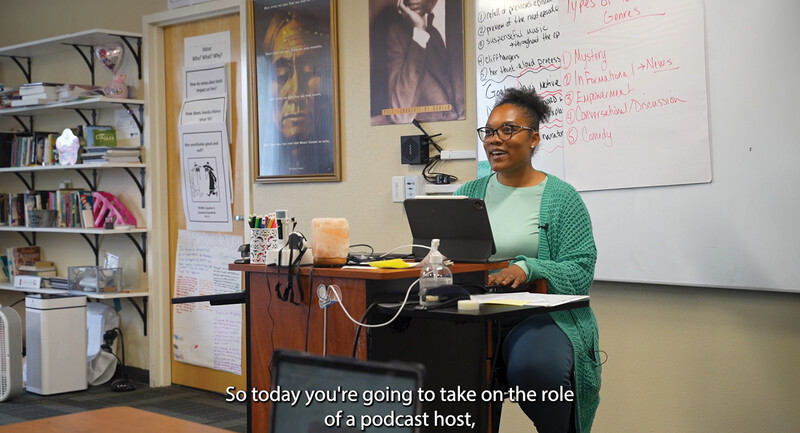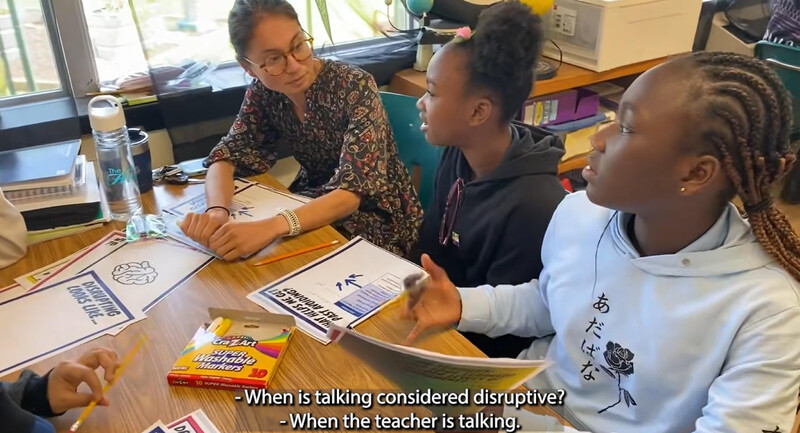A number of times a year, I review articles that researchers have submitted to journals for possible publication. I don’t always look forward to the role of reviewer. It can feel a little like grading a complex student paper—a responsibility more than an opportunity. But also from time to time in reviewing, as in grading papers, I read something that really energizes me and I come away with a clear realization that I was the student in that instance, not the teacher.
I reviewed an article in the past couple of days in which researchers did an analysis of what teachers who are effective with differentiation think about as they plan and guide responsive instruction in their classrooms. They did the usual background research on the topic and analyzed the various elements called for in key models on differentiation. They examined recent research on differentiation for salient indicators. Most impressively, however, they conducted careful interviews with teachers identified as expert in differentiating instruction, and looked for patterns across those interviews.
The manuscript addressed a number of elements I deal with often, and some that I encounter only rarely. The authors describe how persistent the teachers are in accumulating clues about each student they teach, with an eye toward teaching that responds to individuals rather than only to the “batch” in the classroom. They present pre- and formative assessment as a non-negotiable that enables teachers to follow the growth of each student through a unit of study. They illustrate how a teacher’s content knowledge directly impacts the teacher’s ability to differentiate, because the teacher deeply understands how the content works, how it makes sense, and why it matters. This level of knowledge enables a teacher to distinguish what’s indispensable in a lesson and a unit, and to focus on what’s truly critical for students to learn who may not, at this point, be ready to master everything. Deep content knowledge also enables a teacher to extend learning in meaningful rather than trivial ways for students who are learning ahead of the curve.
Regarding instruction, the authors noted a simple and often overlooked reality. Successful differentiation, they said, does not lie in the application of a particular strategy nearly so much as in the teacher’s desire to match the intent of a particular lesson with needs of particular students at particular points in a learning sequence—by whatever means they can. A learning contract may be a great way to bridge where some students are with where they need to go. For other students, small group conversations may work better. Other students may need scaffolded resources, or more complex ones, or models, or more time. It’s not about the strategy. It’s about linking students a teacher knows well with any one of a number of approaches the teacher knows well in order to ensure increased student competence with something else the teacher knows well—the essence of the subject.
The authors went on to point out that the core of differentiation is a teacher making deliberate, accurate, on-going choices about varied pathways to learning, based on a variety of clear, well-conceived goals and continuous monitoring of student progress, leading to adaptation of instruction that involves both proactive (pre) planning and adjusting on the fly. A teacher who has learned to differentiate well is engaging with such a complex array of elements at any given time, the authors concluded, that those elements cannot be captured by a single approach or instrument.
I think it was this last idea that put fresh wind in my sails.
As I was reviewing the article, I was also preparing a session for the upcoming ASCD conference, Empower18, in Boston in March. The goal of the session is to help attendees extend their sense of what it means for a teacher to learn how to differentiate instruction—to take the long journey toward expertise. Too often, we see differentiation as something we do—or don’t do—something we did last year in our school.
In fact, a little guy who goes to his first T-ball practice plays baseball, but there are a thousand, thousand evolutions before he’s ready to play with the high school team, and a thousand, thousand more before he can play with the pros. The little girl who makes up plays in the living room or on the back porch is being an actress. But she will have to grow in countless ways and in every aspect of her being before she can take the stage on Broadway. And after that moment, she will grow in many more ways than she had before that time.
Becoming genuinely effective with differentiation is complex. It calls on us to use the best that is in us every day. It stretches us. It is an art. And like all art, it benefits both the artist and those who learn from the artist. You can sign-up for Dr. Tomlinson’s session at Empower18 co-presented with Dr. Michael Murphy: Moving Forward with Differentiation: A Differentiated Learning Experience.
Carol Ann Tomlinson is William Clay Parrish, Jr. Professor and Chair of Educational Leadership, Foundations, and Policy at the University of Virginia’s Curry School of Education. Prior to her work at UVa., she was a public school teacher for 21 years where she and her colleagues taught in differentiated classrooms. Her most recent book is How to Differentiate Instruction in Academically Diverse Classrooms, 3rd Edition.








